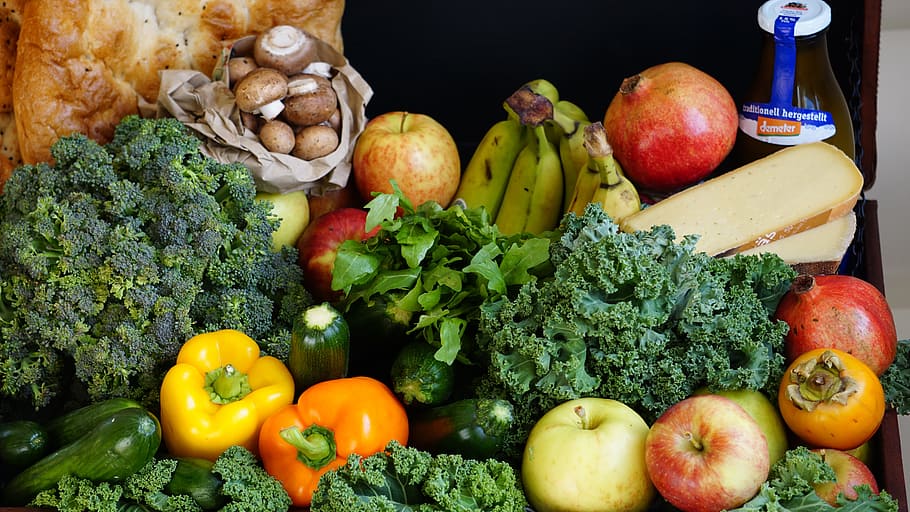Menopause nutrition is an important element of the menopause phase. Menopause can occur naturally as a woman ages, or it can be triggered by specific medical problems or surgical operations.
Menopause affects the majority of women between the ages of 45 and 58. The American College of Obstetricians and Gynecologists (ACOG) reports that the average age for natural menopause in the United States is 51.
Not all women have menopausal symptoms, but for some, unpleasant symptoms may interfere with everyday living. The foods you eat can have an impact on the symptoms you feel.
Eight Super Foods To Improve Your Menopause Nutrition
1. Yogurt
Reproductive hormones, particularly oestrogen, drop dramatically in menopausal women. Estrogen is crucial for bone development and maintenance. The longer a woman has low oestrogen levels, the worse her bone density and the higher her chance of getting osteoporosis.
One of the most effective strategies to lower the risk of osteoporosis is to consume adequate calcium.
Low-fat dairy products like yoghurt, as well as sardines, almonds, fortified orange juice, and various mineral drinks, are also good sources of calcium. These are a simple addition to your menopausal diet.
2. Broccoli
For menopausal women, cruciferous veggies have several health advantages. Broccoli, in particular, has been proven to have a favourable effect on oestrogen levels, boosting the oestrogen responsible for lowering breast cancer risk while decreasing the oestrogen responsible for increasing risk.
Broccoli also contains calcium, which helps to build strong bones, as well as fibre, which helps to avoid bloating and weight gain.
3. Salmon
Salmon is high in vitamin D and omega-3 fats, which are especially important during menopause. While further study is needed, omega-3 fatty acids have been associated to a reduction in night sweats and the risk of breast cancer.
4. Olive Oil
Fats have a bad reputation, but the fact is that some fat in your diet is necessary. Fat helps in the regulation of hormones, hunger, insulin response, and vitamin absorption.
However, not all fats are the same. Increasing your intake of plant-based monosaturated fat will help you decrease your cholesterol. When cooking, consider replacing butter with olive or avocado oil.
5. Oat Meal
Including fibre in your diet in the form of whole grains, fruits, and vegetables can help decrease cholesterol and blood glucose levels, as well as avoid constipation—all health problems that may occur as you approach menopause and beyond.
Replace one serving of refined carbs every day, such as white bread or pasta, with a whole grain alternative, such as oatmeal or brown rice pasta.
As an added benefit, fibre causes you to chew more slowly, which can help you eat more slowly and notice when you are full–both of which can help you avoid weight gain. It contributes more than simply a nutritional benefit to your menopausal diet.
6. Beans and Lentils
Plant-based protein sources, such as legumes, have been proven to delay the onset of early menopause and enhance female reproductive performance. As a result, they are an excellent addition to menopausal diet.
Aiming for three to four meals of beans, almonds, peas, soy, and tofu per day may support ovarian function while also lowering inflammation and oxidative stress.
7. Dark Leafy Greens
There are several reasons to increase your intake of leafy greens, particularly for menopausal nutrition.
Again, consuming cruciferous vegetables is an excellent way to receive several difficult-to-access minerals such as calcium, magnesium, potassium, B vitamins, and fibre.
These nutrients are important for menopausal health because calcium and potassium help keep bones and muscles healthy, B vitamins and fibre assist prevent weight gain, and magnesium and B vitamins help regulate our energy levels and moods.
8. Eggs
Menopause diet doesn't have to be out of the normal. Eggs are high in vitamin D and iron, the two minerals that many women need.
Eggs are also a good protein source for menopausal women because they have been found to lower cholesterol levels, the risk of heart disease, and obesity.
Bottom line:
I'm sure you've heard about tens of thousands different diets. Most people fail to maintain "a decent diet" because it is not their way of life.
Choose a diet that is compatible with your food habits, and make it a habit and part of your lifestyle over time, rather than just for three days or so.
Good food is equal to good investment. These super foods will end up your menopausal problems and you will have a healthy and happy post menopause life.













0 Comments